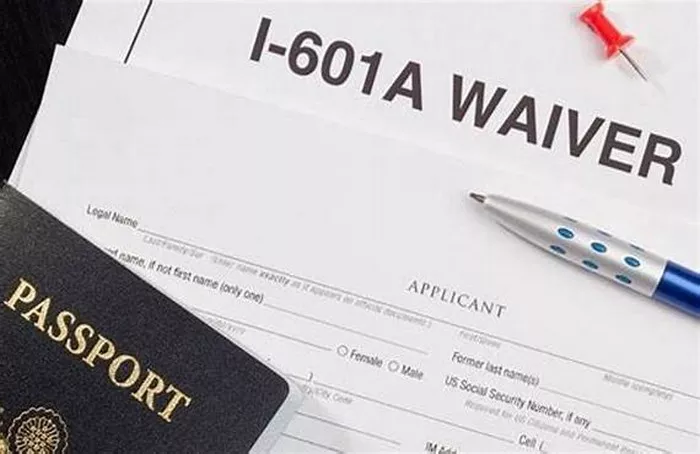In the realm of U.S. immigration, navigating the complexities of waivers can be daunting, especially for those facing inadmissibility due to certain grounds. One such waiver, the i-601 Waiver, provides a pathway for individuals to overcome specific grounds of inadmissibility and pursue lawful status in the United States. This article aims to comprehensively explore who qualifies for the i-601 Waiver, the underlying criteria, the application process, and key considerations for applicants.
What is the i-601 Waiver?
The i-601 Waiver, officially known as the Application for Waiver of Grounds of Inadmissibility, is a legal mechanism that allows certain individuals to seek forgiveness for specific grounds of inadmissibility under the Immigration and Nationality Act (INA). Inadmissibility can arise from various reasons, including but not limited to:
Unlawful Presence: Individuals who accrue unlawful presence in the United States may be subject to bars from reentry.
Criminal Convictions: Certain criminal convictions can render individuals inadmissible.
Fraud or Misrepresentation: Providing false information or committing fraud in immigration processes can lead to inadmissibility.
The i-601 Waiver is crucial for those who are otherwise eligible for an immigrant visa or adjustment of status but are barred due to these grounds.
Qualifications for the i-601 Waiver
To qualify for an i-601 Waiver, individuals must meet specific criteria and demonstrate compelling reasons why the waiver should be granted. While each case is unique and subject to individual circumstances, common grounds for eligibility include:
Extreme Hardship: One of the most prevalent grounds for the i-601 Waiver is demonstrating that denial of admission would result in extreme hardship to a qualifying relative who is a U.S. citizen or lawful permanent resident (LPR). Extreme hardship encompasses various factors, such as medical conditions, financial considerations, separation from family members, and educational disruptions.
Rehabilitation: For individuals barred due to criminal convictions, demonstrating rehabilitation and reform can strengthen their case for a waiver.
No Disqualifying Factors: Certain criminal offenses or security concerns may pose disqualifying factors unless properly addressed or waived.
Key Considerations and Challenges
Navigating the i-601 Waiver process involves careful consideration of legal standards, documentation requirements, and the procedural intricacies involved. Here are some key considerations and challenges applicants should be aware of:
Documentation: Detailed and comprehensive documentation is essential to substantiate claims of extreme hardship or other qualifying factors. This includes medical records, financial documents, affidavits, and other supporting evidence.
Legal Counsel: Given the complexity of immigration law and the stakes involved, seeking guidance from a qualified immigration attorney is highly advisable. An experienced attorney can assess eligibility, prepare a strong case, and navigate potential pitfalls in the application process.
Adjudication Process: The adjudication of i-601 Waivers involves discretionary decisions by immigration officers. Understanding the factors that influence these decisions and presenting a compelling case is critical to success.
Timing and Processing: The processing times for i-601 Waivers can vary significantly depending on the individual circumstances and the workload of the processing center. Delays in processing can impact travel plans and other important life decisions.
SEE ALSO: TEMPORARY PROTECTED STATUS (TPS): ALL YOU NEED TO KNOW
Application Process
The process of applying for an i-601 Waiver typically involves several steps:
Identifying Inadmissibility Grounds: Determine the specific grounds of inadmissibility that apply to your case.
Completing Form i-601: Prepare and submit Form i-601 along with supporting documentation to the appropriate USCIS office or consulate abroad.
Evidence of Eligibility: Compile and submit evidence demonstrating eligibility for the waiver, such as documents supporting claims of extreme hardship or rehabilitation.
Interview (if applicable): Attend an interview if requested by USCIS or the consulate to discuss your case in further detail.
Decision: Await a decision on your waiver application. If approved, you may proceed with your immigration process. If denied, you may have options for appeal or reapplication depending on the circumstances.
Conclusion
The i-601 Waiver offers a vital opportunity for individuals facing inadmissibility to overcome barriers and pursue lawful status in the United States. Understanding the qualifications, requirements, and challenges associated with the waiver process is essential for navigating this complex aspect of U.S. immigration law. By preparing a thorough and well-documented application, applicants can enhance their chances of obtaining a favorable decision and achieving their immigration goals.
In conclusion, while the i-601 Waiver process can be daunting, it provides a mechanism for individuals to seek relief from inadmissibility and reunite with family members or pursue opportunities in the United States. With careful preparation, strategic guidance, and a clear understanding of the requirements, applicants can navigate this process with confidence and strive for a successful outcome.


